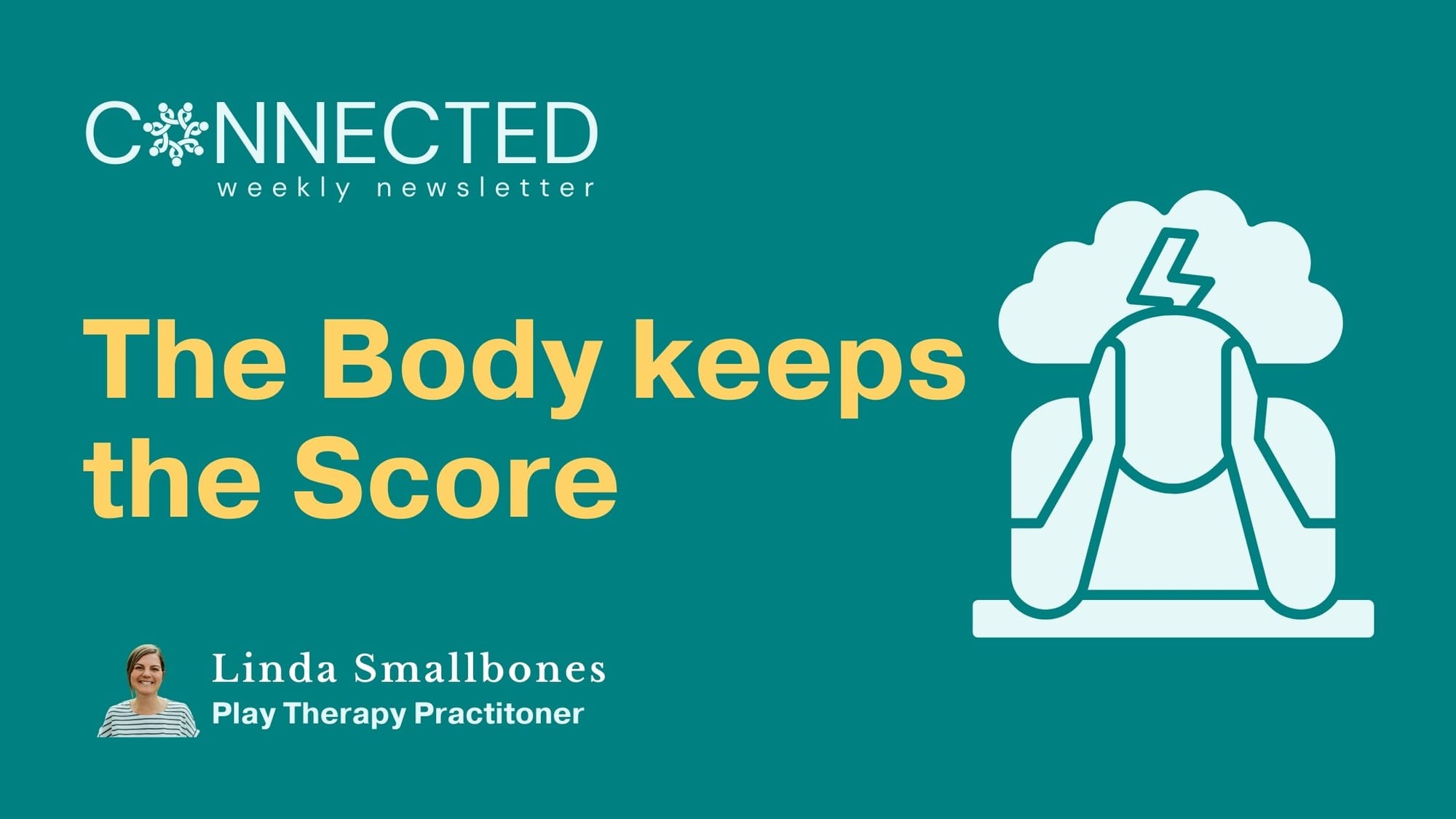The Body keeps the Score
Explore how unprocessed trauma affects parenting, relationships, and personal connections. Learn ways to heal and build meaningful connections.

In 2023 I would like to spend a fair amount of blog-space exploring psychological trauma and the impact it has on parenting, relationships and family life.
Trauma can be an event, but also a context. A trauma can be once-off (such as a serious car accident), or it can be an ongoing situation (such as living in an abusive household).
Whatever it is, or however long it remains, trauma is characterised by horror, helplessness, and fear. Trauma isolates and disconnects us from others because we look at the event or context and tend to blame ourselves. We question how that could have happened to us. Or, we are blamed by others for what happened. Sometimes we feel we deserved it, that we’re inherently bad because it happened to us.
No matter what happens to us in life, good or bad, we are wired to try and make sense of it. We try to fit what is happening into what we know about ourselves and the world.
When trauma happens, it can turn our whole world on its head, especially the way we view ourselves. We can end up with very faulty beliefs about who we are.
[Image Placeholder: The-body-keeps-the-score-2.jpg]
I have had several parents say things like: Why do I have to talk about what happened to me? It’s over. My children do not need to know. Why is it relevant?
In a sentence, coined by Bessel van der Kolk who has written a book by the same name, the body keeps the score. Our trauma lives in our bodies unless we actively deal with and process it.
Trauma changes the way we see the world in that what we perceived as safe, suddenly becomes unsafe to us, even people around us. Meaningful social connection is essential to our wellness, and trauma can damage our ability to connect with others because of the shame we carry.
What does this mean as a parent? If trauma is sitting in our bodies unprocessed – pushed down and away as far as it can go – we are still likely to be triggered at different points, perhaps even by our children. We may find ourselves unable to make a safe, deep connection with our children even as we love them dearly. We could even interpret them as a threat to ourselves when they engage in certain behaviours that unbeknownst to us, are triggers.
Children, by their demanding nature, often trigger our stress response! We operate on little sleep, we tend to all of their needs constantly in their early years. It’s relentless and stressful at times when we don’t know what we’re doing. An untraumatised parent can put these demands into perspective and find healthy ways to deal with the stress.
But for parents with previous trauma, a screaming baby can trigger a very real fear response, leading them to believe that they are in danger. Even a needy child may be perceived as a threat to a parent who was neglected as a baby.
When unprocessed trauma is expressed in parenting, what happens is the parent projects their stuff onto their child. Without meaning to, and often without awareness. When we live with unprocessed trauma, we are using psychological energy keeping things buried where even we can’t remember them, and this means we are not fully available for our most important relationships except maybe at quite a surface level.
[Image Placeholder: The-body-keeps-the-score-3.jpg]
If you’re a parent with trauma in your past and you’ve never dealt with it, I highly recommend finding someone you trust to start working through it with. Starting with therapy is a good idea, but add to this some creativity.
I believe there are many avenues that encourage meaningful self-reflection that can help you to get to know yourself better and take you on a journey of healing. These ideas are therapeutic, without being therapy. Some ideas are art classes, exercise groups, retreats, book clubs… try to find somewhere to belong for yourself that will bring you joy, but also help you to move along on your journey back to finding out who you really are.
You will not only be caring for yourself, you will be working towards better, more connected relationships with others.